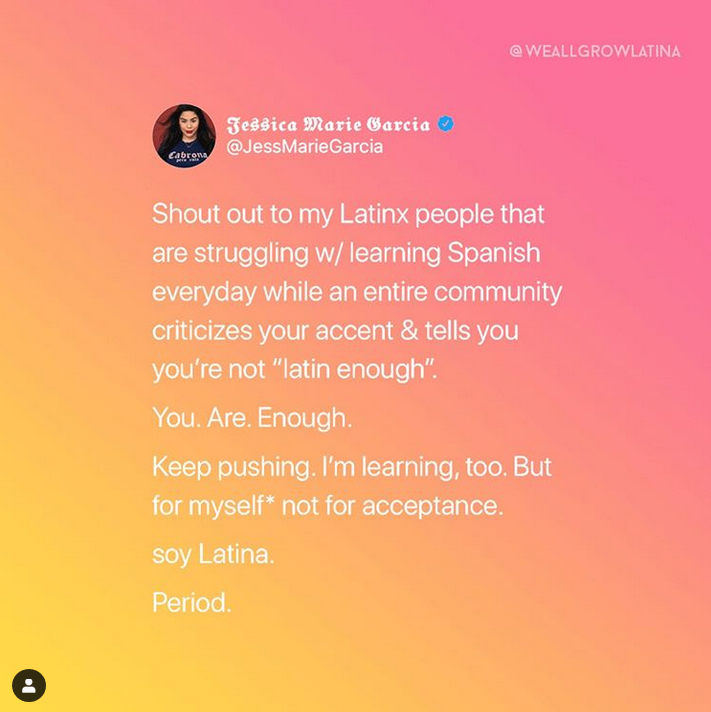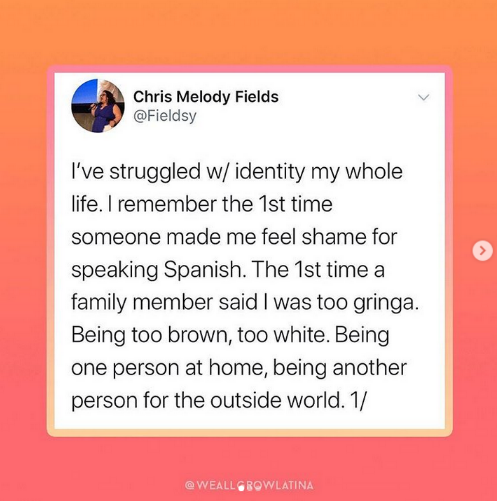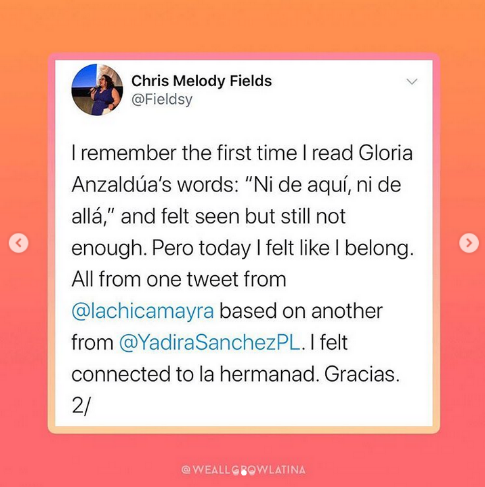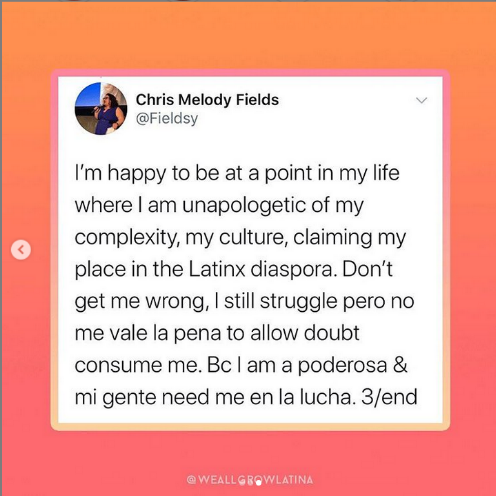Too Much or Not Enough
“The distance between one person and another is really a story.””
I don’t remember what I said. Whatever it was, it made an impression on him. He pressed again, asking, “Where did you learn that?” “I don’t know,” I responded. “It’s just something we say all the time back home.” “I haven’t heard that since my Abuela died years ago,” he said, speaking more to himself than to me. It was as if he was reliving a memory; he was transported somewhere else. So was I. He was an elder at the church I recently joined in Chicago, a Puerto Rican who spent nearly the entirety of his life in this city. I was new to Chicago, returning to the Midwest after a decade in Central Florida. Whatever I said, sent him from the city to the Island, but the words didn’t have the power for a joint trip. I landed just short of the island. Close, but not close enough.
The irony of this exchange is that it endeared me to this elder. It made me an insider, someone who understood the “old tongue.” He made a habit of inviting me to Sunday meals where his wife cooked “a lo antiguo.”[1] Arroz con gandules. Carne guisada con arroz y habichuelas. These were contidiano (ordinary) in my house growing up. What was not ordinary was the impression it made on this elder. Apparently, he was surprised to see a young man still eating this way. I wasn’t used to being treated like I was “authentically” Puerto Rican, yet there I was each Sunday being celebrated by a man and his wife for doing simple things like enjoying tostones.
In Chicago, with this elder, I was celebrated for being “more authentic” than some of the other Puerto Ricans in my generation. To my shame, I reveled in the admiration. Back in Florida, where an estimated 34% of Osceola county’s population identified as Puerto Rican and a large portion of these residents are recent arrivals from the Island, I was never “authentic” enough. My Spanish sounded learned in comparison. My taste for traditional Puerto Rican dishes was refined, but my rhythms, my “flow” was never quite right. Pero en Chicago, I was to my peers what the Ricans in Florida were to me. I was “authentic.” Or, at least, in the eyes of this elder, I was close enough.
Distancia y Dynamica
The Mestizo Podcast is a project that came with an emotional risk. I was nervous about publishing content from a uniquely Latina/o perspective and how that would be received. For my white peers in evangelical academia, I worried it would turn them off to the content, but the greater fear was related to how my Hispanic peers would receive it. Would it be welcomed as an answer to prayer? That was my hope. I prayed regularly for an outlet for conversations about interstitial identities. Experience taught me, however, that whomever starts these conversations gets evaluated, measured against the listeners’ perceptions. For some, I would be too Hispanic to be relevant. For others, I wouldn’t be Hispanic enough. I would be perceived as too white, too Americano, “de afuera” (from the outside). Exiled from one. Not welcome by the other.
During the second episode of the show, Karen Figueroa said, “The distance between one person and another is really a story.” I wondered weeks later about the amount of distance a story could cover. Could a story really tie the two generations of Hispanics together? Could it bridge the distance between Florida and Puerto Rico? In my experience, your proximity to the Island defined how Puerto Rican you were. How often did you visit as a kid? Did you live there at any point? Were you born there? Did you speak Spanish? If so, how was your accent? These questions represented the hermeneutic for deciding your Puerto Rican-ness. But Karen made me wonder, could a story relativize the island? Could narrative beat land the way paper covers rock?
A recent chat with a friend brought these questions to greater focus. After making a joke about the phrase “sin pelos en la lengua”[2] not making sense to me, we debated the image and origin of the phrase. She reminded me that these kinds of expressions are “formed en los barrios de la isla por gente con mucha oralidad.”[3] Then she concluded by saying that the idiom is not meant to be convenient for “gringos” or “una generación que no está conectada a ese contexto.”[4] Admittedly, the joke may have offended her as an Island-born Puerto Rican. In our chat, I felt I was perceived as an outsider mocking something I couldn’t understand. I felt I was perceived as lacking the connection that led to understanding. That may be true, but there is also another possibility. Is my connection strictly related to my physical distance to the Island, or is it possible I am connected via something else?
Oral Cultures and Exiles
In his Nobel-prize-winning book, El Hablador (The Storyteller), Mario Vargas Llosa tells of a young man named Saul, who abandons Peruvian society to become an Hablador of the Machiguenga. The Machiguenga is a tribe that lives as scattered family camps across the Peruvian-Amazon rather than live together as one complete community. In this unusual, dispersed way, the Machiguengas claim the entire forest as theirs, each family taking up their own corner of it and moving as food would require. Only one person traveled from family to family connecting them together. El Hablador.
For the Machiguenga, the storyteller is of sacred, indeed religious importance. The storyteller’s job was simple enough: to speak. “Their mouths were the connecting links of this society that the fight for survival had forced to split up and scatter… Thanks to the storytellers, fathers had news of their sons and brothers of their sisters … thanks to them they were all kept informed of the deaths, births, and other happenings in the tribe.” The storyteller did not only bring current news; he spoke of the past. He is the memory of the community, fulfilling a function like that of the troubadours of the Middle Ages. The storyteller traveled great distances to remind each member of the tribe that despite their miles of separation, they still formed one community, shared a tradition, beliefs, ancestors, misfortunes, and joys. The storytellers, writes Vargas Llosa, were the lifeblood that circulated through Machiguenga society, giving it one interconnected and interdependent life.
The Machiguenga storyteller is “tangible proof that storytelling can be something more than mere entertainment … something primordial, something that the very existence of a people may depend on.”
Vargas Llosa’s book highlights the importance of the story for exiled portions of a people group. What makes the Machiguenga a single people isn’t their proximity to a center or place of origin. There is no required pilgrimage for the Machinguenga that reinforces their identity. The story, and their regular submersion in it, is what makes every member, even those born on the outer limits of the jungle, part of the tribe. For persons like me, this makes sense as an explanation of my identity. Yes, as my friend rightly noted, Puerto Rican phrases come from an oral culture, but many of us US-born Puerto Ricans understand that far more than we are given credit. We know that our Rican-identity is rooted in this oral tradition. We aren’t Puerto Rican by the simple fact of an Island birth. Our identity relies on something more complex; it relies on our live connection to the oral tradition – stories, bombas, dichos, bailes, poesías, and even phrases like the one I lightheartedly teased. Like the people of Israel in the Old Testament, we are a people because of a shared narrative.
Generational Responsibility
Many of my Chicago friends who identify as Puerto Rican don’t speak Spanish. For a long time, I put on airs because I did. This is typical among 2nd and 3rd generation Hispanics, to judge and be judged. Those who rank higher on the Puerto Rican-ness scale usually take on the role of gatekeeper, withholding the right to claim certain parts of Puerto Rican identity from others lower on the scale. There are so many stories about the pain caused by this kind of intercommunity conflict. Here are just two snapshots of how it makes the non-Spanish speaker feel.




Both tweets reflect infighting between LatinX people based on judgments about what it means to be LatinX. There are myriad reasons why this kind of conflict continues, and some are legitimate and worth addressing; the colorism in our community primary among them. However, there are also several reasons why linguistic ability should not be held against the diaspora’s children. As Gina Rodriguez, star of Jane the Virgin, stated, many parents refused to teach children Spanish, hoping they would lose the accent and be offered greater opportunities in the “white world.” Learning Spanish was not an option. It was discouraged.
I sympathize with parents who made this tough decision in hopes for a better life for their children. They could not foresee the way the Hispanic community would boom and gain influence today. Of course, this is one of many possible reasons for the loss of the language and culture. I am not accusing parents or blaming them for this loss. An individual’s flourishing (or diminishing) ability to access their cultural resources is in large part affected by the community. If the immigrant generation made a mistake by not passing the language down, there is still enough time and resources for it to be restored by the community. Once more, this is where the Machiguenga teach a vital lesson. Cultures survive because of storytellers not gatekeepers. We need a new way forward in the restoration and preservation of the Latinos’ community wealth, one that removes the judgment and includes the diversity of the diaspora’s children. We need more Habladores and fewer gatekeepers.
Galatas and the First Gatekeepers
Again, a gatekeeper is someone who “takes it upon themselves to decide who does or does not have access or rights to a community or identity.”[5] Gatekeepers may do this intentionally or by instinct – an impulse taught to them by the culture. I acted as a gatekeeper in my hubris about speaking Spanish. Whether with the intention of keeping the culture “pure” or the instinct to establish their standard, gatekeepers devalue “other’s opinions on something by claiming they’re not entitled to the opinion because they’re not qualified, … [or] a part of a particular group.”[6]
One of the earliest accounts of cultural gatekeepers is the small letter included in the Bible as the book of Galatians. The conflict that inspired Paul to write this letter was the arrival of Jewish believers to the region of Galatia. These new arrivals argued that non-Jewish Christians had to adopt Jewish practices and customs to truly belong to the people of God. Paul wrote with passion, reminding the church of his past as a zealous follower of Jewish tradition. He writes, “I was advancing in Judaism beyond many of my own age among my people and was extremely zealous for the traditions of my fathers” (Gal. 1:14). Like the generational ranking that happens among LatinX people today, Paul was highly ranked as a Jew among Jews, yet he relativizes the Jewish Law by reminding the church of the essential element that identifies them as Christians – the gospel.
Paul is an Hablador. He knows the stories and focuses on the central narrative that ties this people together as one. Paul acknowledges the wisdom of the Law but presses the point that the Law was insufficient. It is faith in Jesus Christ that makes them sons and daughters of God. “There is neither Jew nor Gentile, neither slave nor free, nor is there male and female, for you are all one in Christ Jesus” (Gal. 3:28). The good news of Jesus’ death and resurrection births a mestizo Church. It also enables a new form of relating between mestizos. “Since we live by the Spirit, let us keep in step with the Spirit. Let us not become conceited, provoking and envying each other” (Gal. 5:25-26).
The gospel is a unique story in that it has the power to birth community across disparate and even enemy groups. Paul’s argument is also instructive for people within the same group. Puerto Ricans in the diaspora already know the importance of storytelling. While we may not understand every practice nor practice every custom, Habladores like Paul help us stay connected to them. They also help grow the story’s community to include the diaspora’s experience. Among young US-born Latina/os, there are some recording our history, researching our dances, and writing new poetry. These represent a collection of new Habladores, storytellers who bring new life to the older generation, demonstrating that the culture isn’t dying. The culture has always been close to the diaspora, not because of their proximity to the Island, but because of their rehearsal of the stories.
About Emanuel Padilla
Emanuel Padilla is President of World Outspoken, a ministry dedicated to preparing the mestizo church for cultural change through training, content, and partnership development. He is also an instructor of Bible and Theology at Moody Bible Institute. Emanuel is committed to drawing the insights of the Latina/o church for the blessing of the wider church body. He consults with churches on issues of diversity, organizational culture, and community engagement.
Footnotes
[1] Trans. - Old school or traditional.
[2] An expression that generally means, “When you’re so blunt not even hairs could soften the words.”
[3] Translation: “formed in the hoods of the island by people with an oral tradition.”
[4] Translation: “a generation that isn’t connected to that context.”
[5] “Urban Dictionary: Gatekeeping,” Urban Dictionary, accessed May 24, 2020, https://www.urbandictionary.com/define.php?term=Gatekeeping.
[6] “Urban Dictionary: Gatekeeper,” Urban Dictionary, accessed May 24, 2020, https://www.urbandictionary.com/define.php?term=Gatekeeper.


